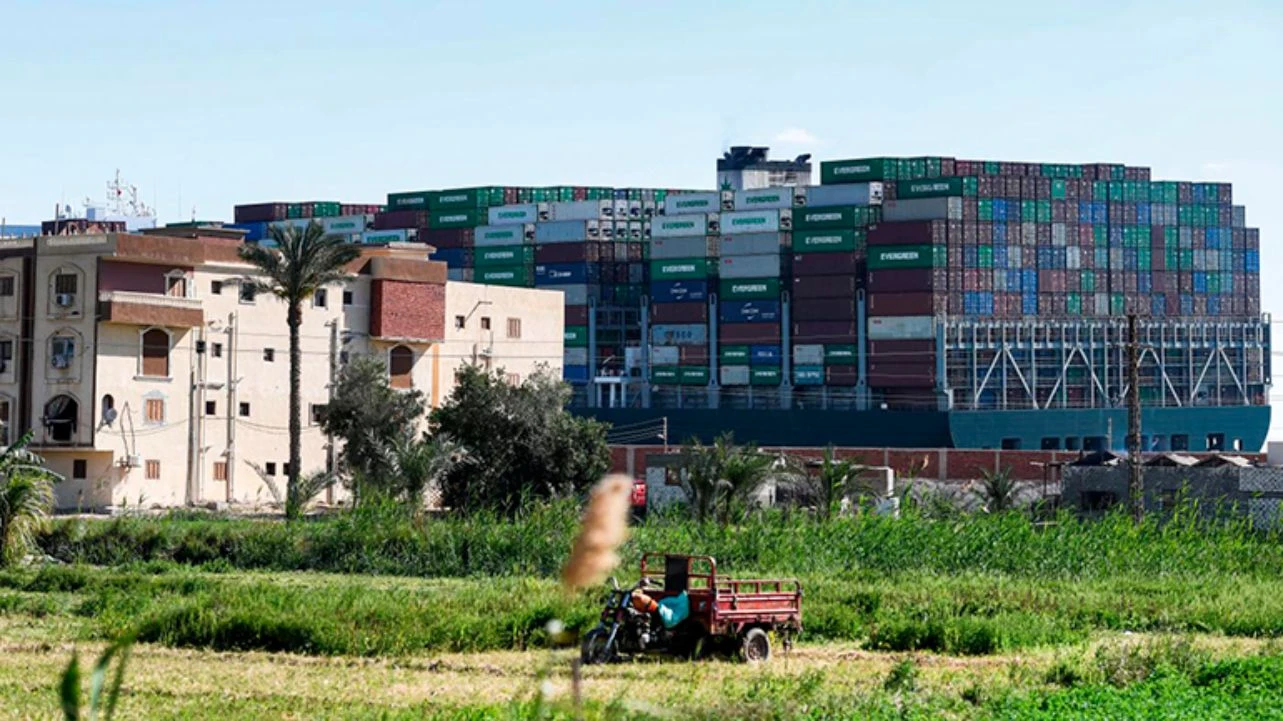
Held on 16 Sep 2017
Archipiélago is a concert series and research project that unfolded in the Museo Reina Sofía from 2017 to 2023 with the aim of questioning the universality of the term “experimentation” within the sphere of Western music. The term, which originated as a concept in the USA, has been replicated to the extent that it has created a canon and even a genre. Across its different editions, the series brought together different musicians, performers and researchers from around the world in an attempt to rethink other forms of experimentation beyond the frameworks of hegemonic thought. In collaboration with music groups and artists from different geographical areas, Archipelago approached this concept of “experimentation” from different perspectives.
Following a first edition in 2017, in which pioneering figures of minimalism encountered music and genres from non-European zones and new generations of artists, in 2018 it sought to resituate and question the term “experimental” with texts hailing from Central and South America and the Middle East, where the idea of experimentation as an avant-garde rupture lacks meaning opposite that of tradition as a living form of knowledge constantly mutating and spreading. Thus, in 2019 the programme introduced the act of listening to sound compositions and experimentations without applying any historical or geographical order, letting, by contrast, connections materialize between heterogenous languages and contexts. Despite the difficult circumstances brought about by COVID-19 in 2020 and 2021, a decision was made to back the physicality of live music and, therefore, strengthen local fabrics. In 2022, the project embarked upon a deep-time study of certain musical mutations that had not been addressed to an adequate degree from the previously investigated English-speaking narrative. Through a study of ocean currents, winds, trade routes and submarine cabling, a themed journey was put forward, one in which there is little to no difference between experimentation and tradition. Finally, for the closing edition in 2023, Archipelago set forth an account of fictional archaeology to re-consider the discourse of Western modernity by listening to an “impossible past” from which to imagine other futures for music.
Curators
Rubén Coll y José Luis Espejo
Organised by
Museo Reina Sofía
Sponsor

-
September 16, 23 and 30, 2017 Sabatini Building
Archipelago 2017
Concert series
This first edition of Archipelago was enveloped in drone music and minimalism, exploring its influences and unexpected offshoots. The programme included key figures of experimentalism such as the French composer Éliane Radigue and the New York-based Japanese sound artist Yoshi Wada — both linked to minimalism and Fluxus, respectively. These “pioneering” figures were also joined by younger artists who, despite sharing certain compositional roots with Eastern music, adopt different formal approaches. For this particular edition, the artists presented commissioned and unreleased works, with the exception of Éliane Radigue’s Trilogie de la mort (Trilogy of Death), performed in its entirety by Emmanuel Holterbach for the first time in Spain.
Participants: Severine Beata and Javi Álvarez, Emmanuel Holterbach, iNSANLAR, Agnès Pe, Damián Schwartz, and Yoshi and Tashi Wada

-
Friday 21 and Saturday 22 September, 2018 (check programme) / Sabatini Building, Vaults Gallery, Garden and Auditorium, and Real Conservatorio Superior de Música de Madrid, Manuel de Falla Auditorium
Archipelago 2018
Concert series
In its second edition, Archipelago reasserted its intention to present listening as a form of both knowledge and aesthetic pleasure. This edition saw Rubén Coll join the curatorial project, which set forth more comprehensive research into the feeling of exhaustion that can be perceived in the West’s experimental scene, whereby the relationship between formal rupture and progress often proves unconvincing. The participating artists questioned the universality of experimentation precisely as it had been expounded in some of Europe’s and the USA’s major cities, often looking to vindicate the non-Western roots of their music.
Participants: AMMAR 808, Clara de Asís, DJ LAG, Errorsmith, Cedrick Fermont, Hashigakari, Áine O’Dwyer, Janneke van der Putten, Nadah El Shazly, Tarawangsawelas & Rabih Beaini, Toukadime and TUTU.

-
From 18 to 21 September 2019 Museo Reina Sofía (Sabatini Building, Vaults Gallery, Auditorium, Nouvel Building Auditorium, 400 Hall and Palacio de Cristal); Iglesia de San Millán y San Cayetano; Municipal School of Music and Dance, Distrito Centro María Dolores Pradera
Archipelago 2019
Concert Series
The 2019 edition explored the concept of tradition: a term associated with conservatism and regression in the face of change, but with a meaning that implies the transfer of knowledge from one person to another, from one generation to the next. Thus, the programme featured not only artists that experiment with non-Western roots, but also shone a light on noise, singeli and dance music, genres which subvert any attempt at classification via traditional forms such as electroacoustic, gnawa and traditional Kurpie music, as well as music from the nearby Madrid mountain range and the Galician bagpipes.
Participants: Saba Alizadeh, Asmâa, Kolida Babo, Rashad Becker, Lea Bertucci, Chulapeiras, Hamzaoui and Bnat Timbouktou, Gaba, Nina García, Ipek Gorgun, Miguel Nava and Rafa Martín, Bamba Pana & Makaveli, Psicolabio, Síria, R. Vincenzo, Lechuga Zafiro and Żywizna (Raphael Rogiński + Genowefa Lenarcik).

-
Friday, 18 and Saturday, 19 September 2020 (check programme) Nouvel Building, Auditorium 400
Archipelago 2020
Concert series
Organised at the height of the COVID-19 pandemic, this edition of Archipelago adopted an unusual format: all performances took place in the Nouvel Building’s Auditorium 400 with a quadrophonic arrangement of sound. Placing the stress on the physicality of sound and physical presence opposite streaming, DJ-led listening sessions were put forward and drew inspiration from the experience of diaspora, in addition to concerts that sought to reinvent the popular and speculate on what will come and be built in a highly unpredictable future.
Participants: Cher-ee-lee, Lucrecia Dalt and Jokkoo (Baba Sy & Mbodj), Jessica Ekomane and Tarta Relena.

-
December 2021 Nouvel Building, Auditorium 400, Lobby
Archipelago 2021
Concert Series
TicketsThis fifth edition tackled the complexity of the post-traumatic effects of lockdown and crisis, responding to this situation by focusing on the local scene, realised with Atomizador and his approach to psychodelia from the instrumentation that characterises historical Western music. Marta De Pascalis, a Berlin-based composer from Rome, explored the complex ramifications of contemporary electronic music through the filter of southern European tradition, while non-hegemonic rhythmic innovations — one of the festival’s core areas of interest — found a space in the session of De Schuurman, a key figure in the evolution of bubbling, a music genre originating from Afro-Dutch postcolonial diaspora and highly influential, despite its limited exposure.
Participants: Atomizador, Marta De Pascalis and De Schuurman
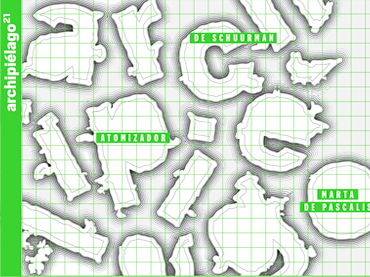
-
Saturday, 18 June 2022 Sabatini Building, Auditorium and Garden
Archipelago 2022
The Material Conditions of Our Music
TicketsStarting from the image of the ship Ever Given stranded on the Suez Canal in 2021, the sixth edition of Archipelago reflected on the material questions that influence music, for instance the transportation of raw materials and goods and the importance of ports, colonial routes and ocean currents, in addition to forced migrations. Through a string of concerts fusing traditional music and experimentation, Archipelago recapitulated, reinterpreted and overhauled learning related to the common history of traditional music to date.
Participants: Erkizia + Cantizano, Edna Martinez, Pujllay Masis, Mazaher and Mohammad Reza Mortazavi.
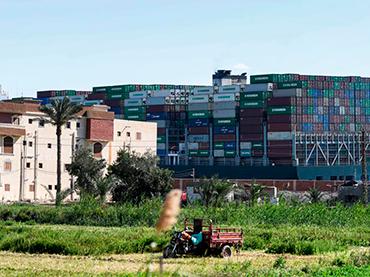
-
Friday, 16 and Saturday, 17 June 2023 Sabatini Building, Auditorium, southwest Stairwell and Garden
Archipelago 2023
El Hierro Will Once Again Be the Centre of the World
Tickets (16 June)The 2023 edition brought down the curtain on a theoretical and geopolitical journey through the musical mutations of our times which was set in motion in 2017 by José Luis Espejo and then jointly with Rubén Coll from 2018 onwards. The island of El Hierro, halfway between Africa, Europe and South America, is a metaphor for music that circumvents the Western media’s powerful grid, which in turn rules the taste, presence and even fees of musicians from the experimental scene. In this final edition, El Hierro will once again be the centre of the world.
Participants: The Folkloric Ensemble of Sabinosa, DJ Travella and DJ Diaki, Helena Girón and Samuel M. Delgado, and Tenores di Bitti "Mialinu Pira".
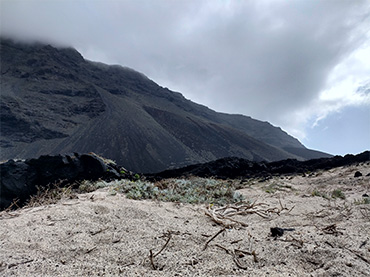
-
Multimedia
Archipelago 2017. Severine Beata and Javi Álvarez + iNSANLAR
Watch videoThis series of videos, made by Machines Desirantes Buro, documents the concerts performed in the first edition of Archipelago, in 2017, and is complemented with extensive interviews with the participants. This particular video features the concerts of Severine Beata and Javi Álvarez + iNSANLAR.
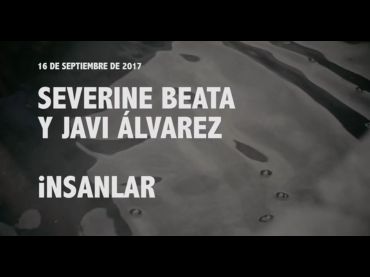
-
Multimedia
Archipelago 2017. Yoshi and Tashi Wada + Damián Schwartz
Watch videoThis series of videos, made by Machines Desirantes Buro, documents the concerts performed in the first edition of Archipelago, in 2017, and is complemented with extensive interviews with the participants. This particular video features the concerts of Yoshi and Tashi Wada + Damián Schwartz.
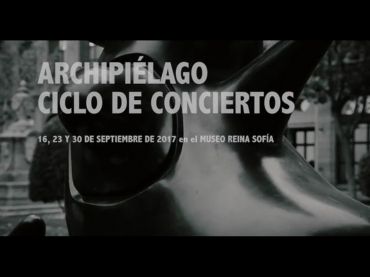
-
Multimedia
Archipelago 2017. Éliane Radigue by Emmanuel Holterbach + Agnès Pe
Watch videoThis series of videos, made by Machines Desirantes Buro, documents the concerts performed in the first edition of Archipelago, in 2017, and is complemented with extensive interviews with the participants. This particular video features the concerts of Emmanuel Holterbach and Agnès Pe.
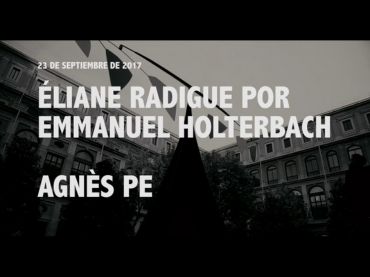
-
Multimedia
Archipelago 2018
Watch videoThis video, made by Banda Negra, assembles the interventions from the second edition of Archipelago and includes interviews with some of its participants, exploring the possibility of new forms of listening from different twentieth-century sound recordings with a desire to unearth alternatives to the restraints of a canon built from now-exhausted genealogies and narratives.
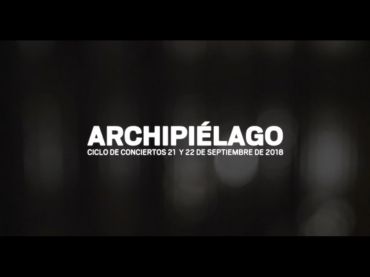
-
Multimedia
Archipelago 2019
Watch videoThis video, made by Banda Negra, documents the third edition of Archipelago, exploring the concept of tradition: a term associated with conservatism and regression opposite change, but with a meaning that implies the transfer of knowledge, from one person to another, from one generation to the next.
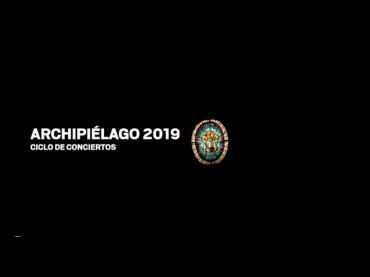
-
Multimedia
Udlot, Udlot by José Maceda
Concert
Watch videoThis video, made by Banda Negra, documents and contextualises the process of mediation, learning and performance of Udlot Udlot (1975), by Philippine composer José Maceda.
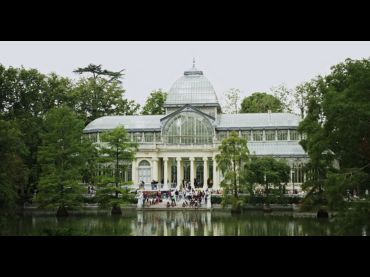
-
Multimedia
Archipelago 2022
The Material Conditions of Our Music
Watch videoThis video, made by Javi Álvarez and Irene de Andrés, reflects the narrative of the 2022 edition of Archipelago. The narration takes us through centuries-old colonial routes for the transportation of goods and cargo, routes which remain today and brought about cultural exchanges that impacted music.
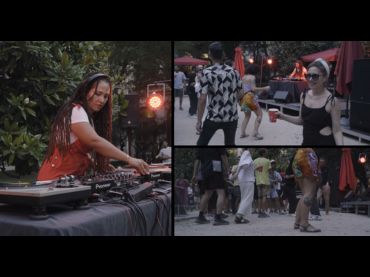
-
Multimedia
Archipelago 2023
El Hierro Will Once Again Be the Centre of the World
Watch videoFrom 2018 onwards, the Archipelago concert series invited the audience to delve deeper into the complexity of the contemporary world through listening, seeking to foreground music genres and modes of listening which provide an alternative to European and US cultural centres. This video, made by Javi Alvárez and Irene de Andrés, documents the seventh, and final, instalment of Archipelago, which was centred on El Hierro, a volcanic island which was considered prime meridian for centuries. Located halfway between Africa, Europe and South America, the island is also a metaphor for all music that circumvents the Western media’s powerful grid.
This edition featured the screening of the film Eles transportan a morte (2021), by film-maker’s Helena Girón and Samuel M. Delgado, from Galicia and Tenerife, respectively; a performance by the Folkloric Ensemble of Sabinosa; music by DJ Travella from Tanzania and Malian DJ Diaki; and a concert by the Sardinian ensemble Tenores di Bitti “Mialinu Pira”.
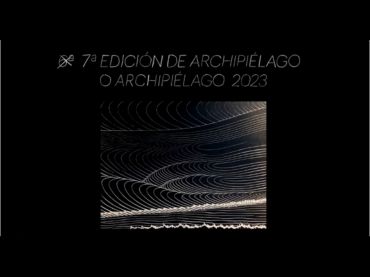
-
Podcast
Archipelago 2020
How to Listen to Live Music Amid a Pandemic
Listen to podcastThis podcast, written and hosted by Rubén Coll and José Luis Espejo, presents the testimony of artists who participated in the 2020 edition of Archipelago, reflecting on how a cultural event is assembled by considering, for instance, the political and commercial structures that underpin our precarious music communities.
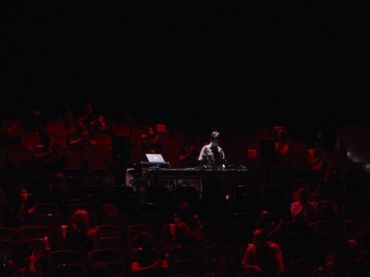
-
Pódcast
Archipelago 2021
Concert Series
Listen to podcastThe series shares, for the first time, the recordings of three concerts which comprised the 2021 edition.
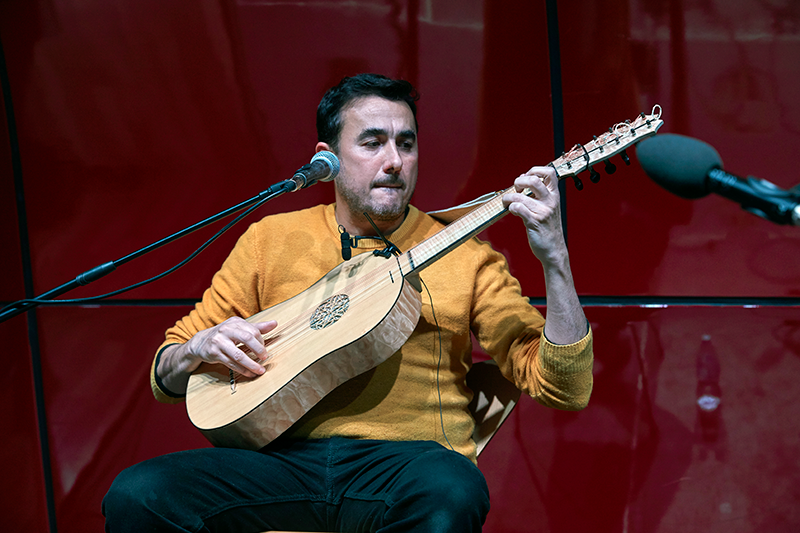
Más actividades

Institutional Decentralisation
Thursday, 21 May 2026 – 5:30pm
This series is organised by equipoMotor, a group of teenagers, young people and older people who have participated in the Museo Reina Sofía’s previous community education projects, and is structured around four themed blocks that pivot on the monstrous.
This fourth and final session centres on films that take the museum away from its axis and make it gaze from the edges. Pieces that work with that which is normally left out: peripheral territories, unpolished aesthetics, clumsy gestures full of intent. Instead of possessing an institutional lustre, here they are rough, precarious and strange in appearance, legitimate forms of making and showing culture. The idea is to think about what happens when central authority is displaced, when the ugly and the uncomfortable are not hidden, when they are recognised as part of the commons. Film that does not seek to be to one’s liking, but to open space and allow other ways of seeing and inhabiting the museum to enter stage.
![Tracey Rose, The Black Sun Black Star and Moon [La luna estrella negro y negro sol], 2014.](https://recursos.museoreinasofia.es/styles/small_landscape/public/Obra/AD07091_2.jpg.webp)
On Black Study: Towards a Black Poethics of Contamination
Monday 27, Tuesday 28 and Wednesday 29 of April, 2026 – 16:00 h
The seminar On Black Study: Towards a Black Poethics of Contamination proposes Black Study as a critical and methodological practice that has emerged in and against racial capitalism, colonial modernity and institutional capture. Framed through what the invited researcher and practitioner Ishy Pryce-Parchment terms a Black poethics of contamination, the seminar considers what it might mean to think Blackness (and therefore Black Study) as contagious, diffuse and spreadable matter. To do so, it enacts a constellation of diasporic methodologies and black aesthetic practices that harbor “contamination” -ideas that travel through texts, geographies, bodies and histories- as a method and as a condition.
If Blackness enters Western modernity from the position of the Middle Passage and its afterlives, it also names a condition from which alternative modes of being, knowing and relating are continually forged. From within this errant boundarylessness, Black creative-intellectual practice unfolds as what might be called a history of touches: transmissions, residues and socialities that unsettle the fantasy of pure or self-contained knowledge.
Situated within Black radical aesthetics, Black feminist theory and diasporic poetics, the seminar traces a genealogy of Black Study not as an object of analysis but as methodological propositions that continue to shape contemporary aesthetic and political life. Against mastery as the horizon of study, the group shifts attention from what we know to how we know. It foregrounds creative Black methodological practices—fahima ife’s anindex (via Fred Moten), Katherine McKittrick’s expansive use of the footnote, citation as relational and loving labour, the aesthetics of Black miscellanea, and Christina Sharpe’s practices of annotation—as procedures that disorganise dominant regimes of knowledge. In this sense, Black Study is approached not as a discrete academic field but as a feel for knowing and knowledge: a constellation of insurgent practices—reading, gathering, listening, annotating, refusing, world-making—that operate both within and beyond the university.
The study sessions propose to experiment with form in order to embrace how ‘black people have always used interdisciplinary methodologies to explain, explore, and story the world.’ Through engagements with thinkers and practitioners such as Katherine McKittrick, C.L.R. James, Sylvia Wynter, Christina Sharpe, Fred Moten, Tina Campt, Hilton Als, John Akomfrah, fahima ife and Dionne Brand, we ask: What might it mean to study together, incompletely and without recourse to individuation? How might aesthetic practice function as a poethical intervention in the ongoing work of what Sylvia Wynter calls the practice of doing humanness?

Intergenerationality
Thursday, 9 April 2026 – 5:30pm
This series is organised by equipoMotor, a group of teenagers, young people and older people who have participated in the Museo Reina Sofía’s previous community education projects, and is structured around four themed blocks that pivot on the monstrous.
The third session gazes at film as a place from which to dismantle the idea of one sole history and one sole time. From a decolonial and queer perspective, it explores films which break the straight line of past-present-future, which mix memories, slow progress and leave space for rhythms which customarily make no room for official accounts. Here the images open cracks through which bodies, voices and affects appear, disrupting archive and questioning who narrates, and from where and for whom. The proposal is at once simple and ambitious: use film to imagine other modes of remembering, belonging and projecting futures we have not yet been able to live.

Remedios Zafra
Thursday March 19, 2026 - 19:00 h
The José Luis Brea Chair, dedicated to reflecting on the image and the epistemology of visuality in contemporary culture, opens its program with an inaugural lecture by essayist and thinker Remedios Zafra.
“That the contemporary antifeminist upsurge is constructed as an anti-intellectual drive is no coincidence; the two feed into one another. To advance a reactionary discourse that defends inequality, it is necessary to challenge gender studies and gender-equality policies, but also to devalue the very foundations of knowledge in which these have been most intensely developed over recent decades—while also undermining their institutional support: universities, art and research centers, and academic culture.
Feminism has been deeply linked to the affirmation of the most committed humanist thought. Periods of enlightenment and moments of transition toward more just social forms—sustained by education—have been when feminist demands have emerged most strongly. Awareness and achievements in equality increase when education plays a leading social role; thus, devaluing intellectual work also contributes to harming feminism, and vice versa, insofar as the bond between knowledge and feminism is not only conceptual and historical, but also intimate and political.
Today, antifeminism is used globally as the symbolic adhesive of far-right movements, in parallel with the devaluation of forms of knowledge emerging from the university and from science—mistreated by hoaxes and disinformation on social networks and through the spectacularization of life mediated by screens. These are consequences bound up with the primacy of a scopic value that for some time has been denigrating thought and positioning what is most seen as what is most valuable within the normalized mediation of technology. This inertia coexists with techno-libertarian proclamations that reactivate a patriarchy that uses the resentment of many men as a seductive and cohesive force to preserve and inflame privileges in the new world as techno-scenario.
This lecture will address this epochal context, delving into the synchronicity of these upsurges through an additional parallel between forms of patriarchal domination and techno-labor domination. A parallel in which feminism and intellectual work are both being harmed, while also sending signals that in both lie emancipatory responses to today’s reactionary turns and the neutralization of critique. This consonance would also speak to how the perverse patriarchal basis that turns women into sustainers of their own subordination finds its equivalent in the encouraged self-exploitation of cultural workers; in the legitimation of affective capital and symbolic capital as sufficient forms of payment; in the blurring of boundaries between life and work and in domestic isolation; or in the pressure to please and comply as an extended patriarchal form—today linked to the feigned enthusiasm of precarious workers, but also to technological adulation. In response to possible resistance and intellectual action, patriarchy has associated feminists with a future foretold as unhappy for them, equating “thought and consciousness” with unhappiness—where these have in fact been (and continue to be) levers of autonomy and emancipation.”
— Remedios Zafra

ARCO2045. The Future, for Now
Saturday 7, March 2026 - 9:30pm
The future, its unstable and subjective nature, and its possible scenarios are the conceptual focus of ARCOmadrid 2026. A vision of the future linked to recent memory, a flash of insight into a double-edged sword. This year's edition, as in the previous two, will once again hold its closing party at the Reina Sofia Museum. This time, the star of the show is Carles Congost (Olot, Girona, 1970), one of the artists featured in the new presentation of the Collections recently inaugurated on the 4th floor of the Sabatini Building.
Carles Congost, with his ironic and timeless gaze, is responsible for setting the tone for this imperfect future, with a DJ session accompanied by some of his works in the Cloister on the first floor of the Sabatini Building of the Museo on the night of Saturday 7 March.